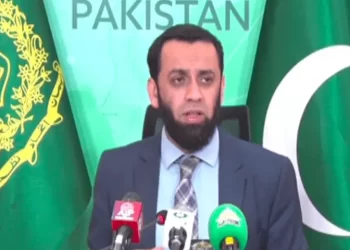As Israel bombs and re-bombs the tiny enclave, questions abound about when it will stop and what it will do next.
It does not seem to.
On Thursday, Defence Minister Yoav Gallant voiced his frustration and called on Prime Minister Benyamin Netanyahu to “make a decision” adding that he did not feel Israel’s involvement in Gaza should be open-ended.
Because Israel controls every aspect of Palestinian life both in Gaza and in the West Bank and East Jerusalem, which it occupies.
Every passing day, less and less of Gaza is left standing, raising increasingly pressing questions on how long the Israeli military can continue its vicious attacks. What does it plan to do once it tires of bombing and re-bombing the tiny, besieged enclave?
On Saturday, army Chief of Staff Herzi Halevi lambasted Netanyahu for the dearth of political planning for a settlement after the war ended.
“As long as there’s no diplomatic process to develop a governing body in the Strip that isn’t [the Palestinian group] Hamas, we’ll have to launch campaigns again and again … to dismantle Hamas’s infrastructure.
“It will be a Sisyphean task,” he said, a reference to mythological tyrant Sisyphus, ruler of Ephyra, who was punished by the gods to spend eternity pushing a rock up a hill only for it to roll back down.
On May 3, Netanyahu published some postwar plans for Gaza online, and they were pretty dramatic.
It would happen over three stages, from an unspecified “victory date” to 2035.
Palestinians in Gaza would run the plan, supervised by a coalition of Arab states – named in the plan and in radio interviews with Netanyahu as Saudi Arabia, the United Arab Emirates, Egypt, Bahrain, Jordan and Morocco.
Politically, after Gaza is “deradicalised” and the trauma of war “forgotten”, it would join with the occupied West Bank, currently under the nominal administration of the Palestinian Authority, and recognise Israel through the Abraham Accords.
Israel would retain the right to react to whatever it saw as “security threats” coming from Gaza.
Once successful, the scheme – the PM’s office said – could be “rolled out across Syria, Yemen and Lebanon”.
Why do we need ‘an Israeli plan’?
UAE Foreign Minister Sheikh Abdullah bin Zayed Al Nahyan lambasted Netanyahu on Sunday on X, making it clear that Netanyahu had not consulted Abu Dhabi on his plans.
Domestically, neither Gallant nor fellow war cabinet member Benny Gantz has been impressed with Netanyahu’s plan or his statements thus far that discussing a “day after” could not begin until “a complete defeat of Hamas”.
Their statements reflect a frustration among Israel’s political leadership and may indicate some splintering.
On May 2, the United Nations estimated that rebuilding Gaza would be the largest post-war reconstruction effort since the end of World War II in 1945.
According to the UN Development Programme, some 70 percent of all housing has been destroyed and, beyond the trauma experienced by the enclave’s population, would require a minimum of $40-$50bn to rebuild.
No costings for Netanyahu’s plans have been found, making it difficult to evaluate.
Not so much.
Netanyahu oversees an unruly coalition cabinet, racked with infighting and division, and they are not all pleased with their prime minister.
Some members are pushing for negotiations to guarantee the safety of the remaining captives in Gaza, while others are clamouring for the occupation and destruction of the southern city Rafah – which was the last city yet to be invaded by land – over all else, even the continuation of the government.
On Tuesday, Netanyahu’s national security minister, far-right provocateur Itamar Ben-Gvir, attended a rally by ultranationalist groups in Sderot, near Gaza.
“To end the problem [of Gaza], so that the problem won’t come back, we need to do two things: One, return to Gaza now! Return home! Return to our holy land!
“And second, encourage … the voluntary departure of Gaza’s residents…It is ethical! It is rational! It is right! It is the truth! It is the Torah and it is the only way! And yes, it is humane,” he said.









